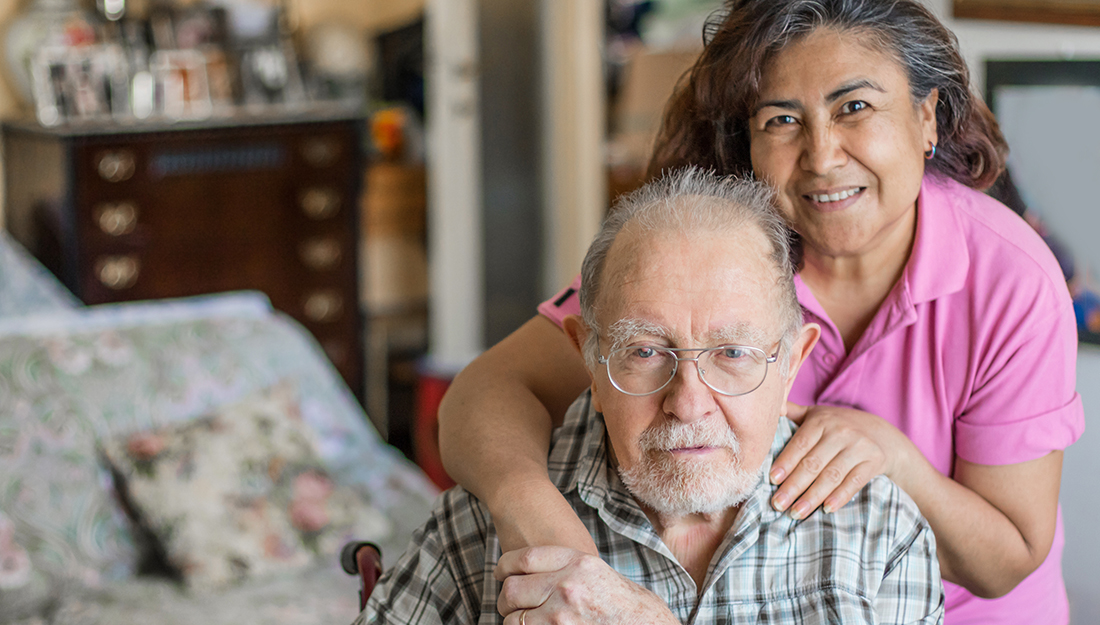Family caregivers are an integral, under-appreciated force

More than 50 million people in the United States are caregivers to aging parents, ill spouses or other loved ones with chronic diseases or disabilities. Families are the major providers of long-term care for older adults, and that unpaid caregiving accounts for more than $500 billion annually, according to the National Association for Area Agencies on Aging. To honor and recognize the contributions of these family caregivers, the month of November has been recognized National Family Caregivers Month.
“Family caregivers are an integral but often under-appreciated force in the American care system,” said Marcia Ory, PhD, MPH, founding director of the Texas A&M Health Center for Population Health and Aging. “They are the unsung heroes behind the medical teams and health care providers, helping with everyday routines and dealing with challenges of living with health problems.”
According to the Caregiving in the U.S. 2020 report, the prevalence of caregiving for adults has risen from 16.6 to 19.2 percent in five years (2015-2020)—that’s an increase of more than 8 million adults providing care to family or friends.
Although caregivers of adults primarily care for a relative—with 50 percent of those care recipients being a parent or parent-in-law—other care recipients include spouses/partners, grandparents/grandparents-in-law and adult children. About 10 percent of caregivers provide care to their neighbors or friends. In addition, a greater proportion of caregivers are providing care to two or more recipients, up from 18 percent in 2015 to 24 percent in 2020.
“Caregiving is an activity that doesn’t discriminate. People of all generations, racial/ethnic groups, income or education levels, family types, gender identities and sexual orientations can be caregivers,” Ory said. “And many of these familial caregivers are providing care without pay.”
In fact, family caregivers provide roughly 24 unpaid hours of care each week, according to the Caregiving in the U.S. 2020 report. Longer term, these caregivers find themselves providing care for 4.5 years, on average, and an increasing proportion have been providing care for five years or longer (29 percent, up from 24 percent in 2015).
Although caregivers rely on health care professionals as a source of information about providing care (55 percent), few report talking with health care professionals about what they need to provide care (29 percent) and what they need to do to support their own well-being as a caregiver (13 percent).
“Caregivers often feel the push and pull of providing care on their time, their financial well-being, their health, their family, their work and their own personal well-being,” Ory said. “They may find themselves in need of information, resources or programs—but it’s often difficult to sort through the maze of information or to access potential solutions like in-home or residential care which are often too expensive to afford. This can lead to family caregiving affecting families economically and financially—a situation which is especially true for those caring for persons living with dementia.”
In fact, one in five caregivers report high financial strain as a result of caregiving, with three in 10 stopping saving and one in four taking on more debt. In addition, six in 10 caregivers report working while caregiving often causing them to experience work-related impacts like going in late, leaving early or taking off time to provide and accommodate care; one in 10 report having to give up working entirely.
So what can caregivers do to ensure their physical, emotional health and financial well-being?
“Be sure to take time for yourself and nurture your own mind and body,” Ory said. “If you aren’t healthy, both you and the person you care for will suffer. There are great resources from organizations like AARP and the National Alliance for Caregiving that can give you the information to find support.”
Additionally, the Center for Population Health and Aging is conducting various studies to better understand the situation of caregivers of persons living with dementia. Those interested in learning more about these studies are invited to contact Aya Yoshikawa, PhD, at 979.436.9527 or activeagingtexas@tamu.edu.
Media contact: media@tamu.edu


